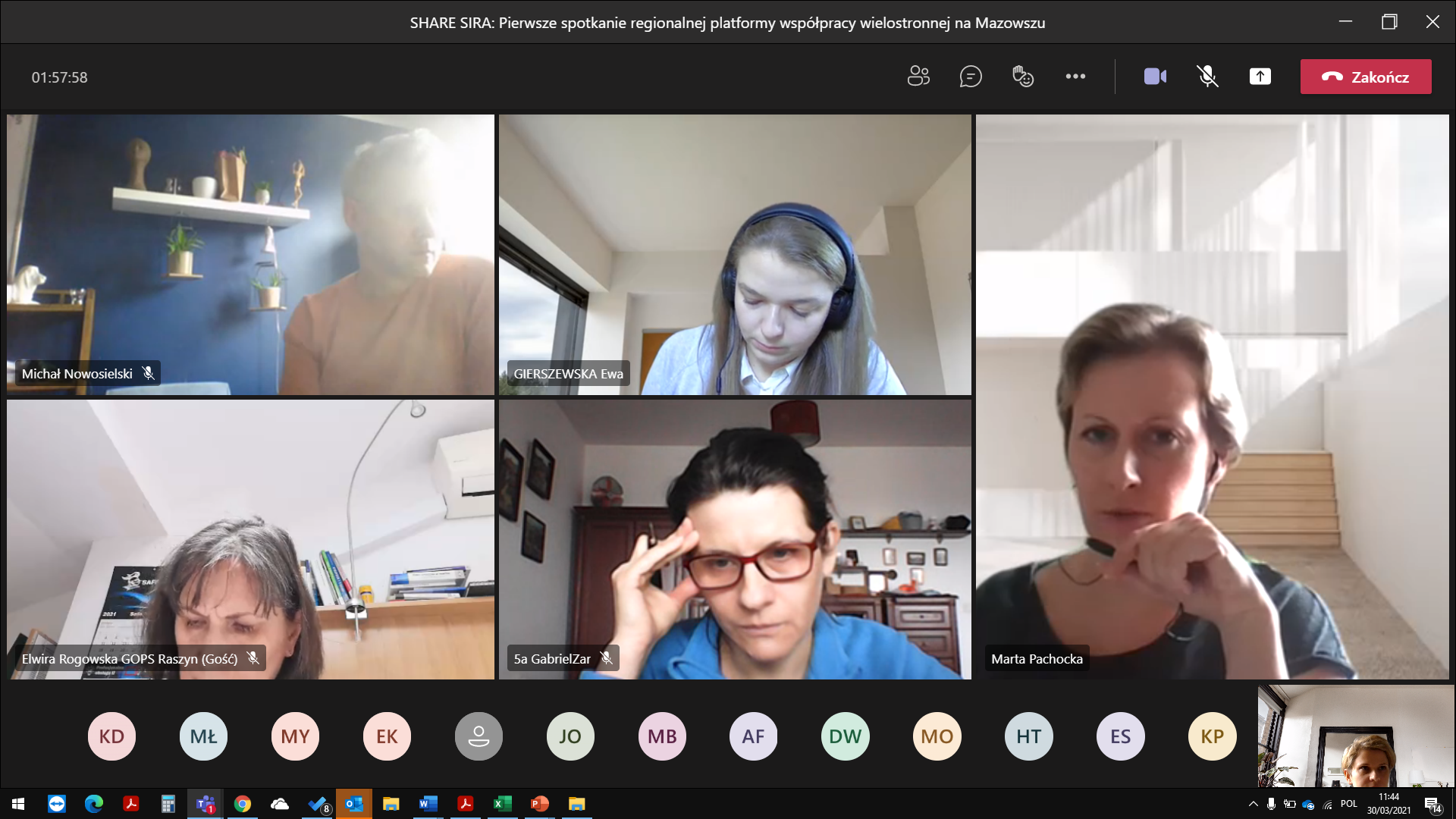Regional multi-stakeholder cooperation platform for migrant and refugee integration launched in Mazovia
The regional platform is set up in the framework of the Share SIRA project, our European project co-funded by the European Union’s Asylum, Migration and Integration Fund, which aims at strengthening and expanding the social orientation and overall integration of newcomers in rural territories in Europe. Besides the Province of Mazovia, regional multi-stakeholder cooperation platforms have also been set up in 9 other rural regions in Europe. Click here to find out more about these regions!
“The key to surpass the current integration challenges is to establish effective and inclusive access to technology”
Courtesy of IOM Poland
On 30 April 2021, IOM Poland and ICMC Europe, lead of the SHARE Network, organized the first roundtable of the regional multi-stakeholder cooperation platform for migrant and refugee integration of the Polish province of Mazovia.
The two-hour event took place online and gathered 20 stakeholders active in the reception and integration of refugees and migrants in the region. This included local and regional authorities from the city of Warsaw and the province of Mazovia, academics and representatives of migrant associations, civil society organisations, faith-based organisations and mainstream service providers.
Adopting a multi-stakeholder approach, the regional platform aims at fostering cooperation, coordination and knowledge sharing between stakeholders involved in refugee and migrant integration in the region, as well as pilot innovative inclusive territorial approaches for social orientation and integration to foster social cohesion.
During the first roundtable , participants exchanged on their activities in the field of integration, the current initiatives in place, the materials produced, and the good practices identified. They also discussed the needs of newcomers and the challenges they encounter in rural areas, such as the lack of direct assistance, digital exclusion (especially related to education), limited eligibility for orientation programmes, lack of engagement of the host community in integration initiatives or limited cooperation between stakeholders involved in integration. The conclusions from the exchange will thus contribute to the creation of a strong evidence-base on social orientation and integration in the region, which will help shape upcoming activities.
The stakeholders involved in the regional platforms will gather on three more occasions over the course of 2021/2022. You can find more information on the activities in the province of Mazovia on the regional webpage.



